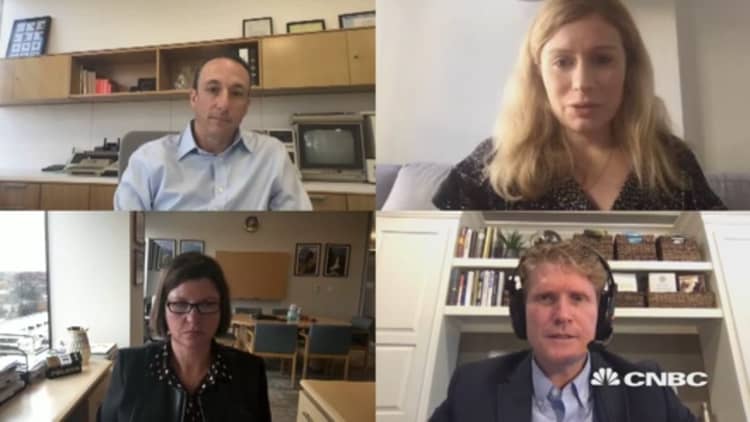Are you stocking up on cold and flu meds for the winter? Buying an at-home Covid-19 test kit? If so, you are running out of time to use this tax-advantaged account for those purchases.
Health-care flexible spending accounts, which may be available at your job, allow you to stash pre-tax dollars and tap them free of tax for qualified medical expenses.
In 2020 and 2021, you can save up to $2,750.
Though you can use the money as early as Jan. 1, you generally have until the end of the year to use up your funds — or else you forfeit them.

The IRS gives employers the choice of allowing workers to roll over some money into the following year — up to $550 for 2020 — or offering them up to 2½ months after the plan year ends to spend remaining cash.
Bear in mind: Your employer isn't required to give you either choice.
Unspent cash goes to the employer, where it can be used to cover plan expenses.
"We know based on consumer industry data, savers forfeit $400 million to $500 million in FSA funds each year," said Rachel Rouleau, vice president of compliance for Health-E Commerce, the parent company of FSAStore.com.
An extraordinary year
Since Covid-19 kept so many people at home this year, many employees took a longer time to use their rolled over balances from 2019 — and they were running out of time to use the cash.
Some employers offered their savers flexibility in light of the pandemic, including stopping deferrals to the FSAs, according to Ed Zollars, CPA and partner at Thomas, Zollars & Lynch in Phoenix and an instructor at Kaplan Financial Education.
The IRS issued special relief in May, allowing plan administrators to give workers until the end of 2020 to use up funds that were rolled over from 2019.
The additional flexibility also applies to money in dependent care FSAs. Parents can use these accounts to save up to $5,000 in pretax dollars to cover childcare for kids under age 13.
More from Smart Tax Planning:
Student loan forgiveness may come with a tax bomb
Got Bitcoin? What it means for taxes in 2020
Business owners expecting PPP forgiveness can't deduct costs
Just be aware your employer isn't required to offer this relief.
Further, there hasn't been guidance from the IRS on what will happen to leftover funds from the 2020 plan year and whether there will be further opportunities to push the money into 2021.
Savers are facing that conundrum as Covid-19 cases continue to spiral and the year approaches its end. Another round of shutdowns could mean the money goes unused again.
"As we get to the end of December, that's when the IRS will be expected to address again that there are people stuck with money in 2020 and they couldn't cut the contributions off early enough," said Zollars.
Finding eligible expenses
An array of products are FSA-eligible, and you might not even have to leave your house to get some of them.
Covid-19 test kits that you can use at home are an eligible expense, as are infrared forehead thermometers and pulse oximeters — devices that measure your oxygen levels — according to Rouleau of Health-E Commerce.
Braces and teeth aligners are also FSA-eligible, if you were hoping to correct your bite while you're at home. The same goes for prescription glasses, which are worth considering if you're spending even more time in front of your computer.
The CARES Act, which was passed in the spring, added another item to the list of eligible FSA expenses: feminine care products.
Virtual medicine, which is becoming increasingly popular as a workplace offering, is also an eligible expense, said Rouleau.
Certain expenses need a letter of medical necessity in order for you to tap your FSA. This would include massage therapy, acupuncture and chiropractic work.
Be aware of items that may seem FSA-eligible, but aren't, such as masks and other equipment intended to mitigate the spread of coronavirus.
To that effect, Rep. John R. Curtis, R-Utah, proposed legislation this fall that would include masks, surface disinfectants and hand sanitizers as eligible medical expenses — at least until the Covid-19 emergency period has ended.
"Personal protective equipment currently isn't deemed eligible," said Rouleau. "But we're working to try and change that."





